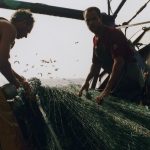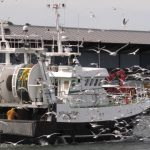The Ministry of Fisheries (MFish) has proposed to protect the declining blue cod fishery and has targeted all fishers, namely, charter, commercial and recreational, to accept responsibility for shared fisheries. But the Marlborough Sounds is a haven for recreational and charter fishers so it gave birth tp strong debate on the issue.
Growing recreational fishing pressures, and the subsequent rapid decline in blue cod numbers, has seen MFish propose to close much of the inner Pelorus and Queen Charlotte sounds to hook and line fin-fishing for three years. MFish even plan to cut daily blue cod bag limits in the remainder of the Sounds from three to two (or six per boat), retain the 30cm minimum legal limit and only allow one bag per day.
It is true that the Marlborough Sounds blue cod fishery is primarily the domain of recreational and charter fishers, who took an estimated 140 tonnes of blue cod in 2005-06. While the commercial vessels tend to focus on the outer Sounds and target blue cod by potting, a method which harvested 91 percent of the blue cod catch, or 23 tonnes, in 2006-07.
The greatest reaction to the MFish proposed hook-and-line ban comes from charter and recreational fishers. It was said that the fishing charter businesses would shut, children would no longer be able to fish from jetties and the shoreline and the town would miss out on weekend Wellington fishers who travel across the Cook Strait by ferry to spend a day on the water.
There is no denying fact that the MFish proposal impinged on what is an essential part of New Zealand life and lacked serious scientific research into the reasons behind the juvenile blue cod decline. The proposals were a temporary measure and part of a longer term plan necessary to counter inevitable growing recreational pressure on the Marlborough Sounds fishery.








